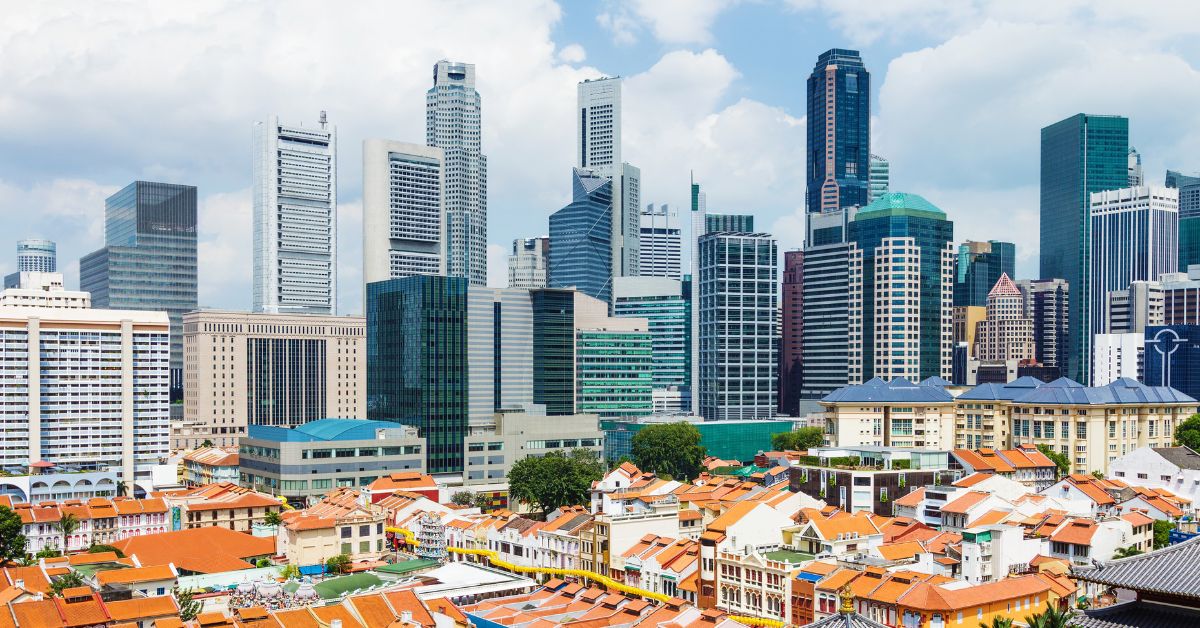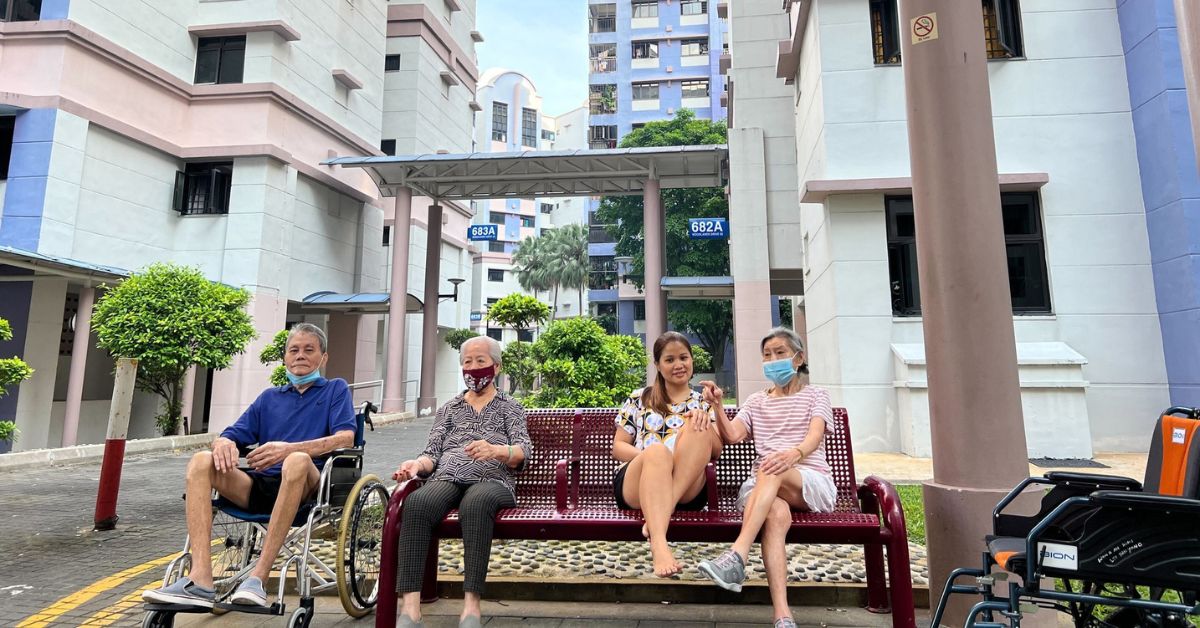
With the General Election due to be held no later than November next year, some punters have speculated that Budget 2024 might be a so-called “election budget” stuffed with goodies to defray rising expenses from inflation and woo the electorate in one fell swoop.
Did the announcement today live up to expectations?
Yes, it certainly feels like there’s an election coming up,
says Alan Chang, 70, retiree.
"There’s been a noticeable increase in the number of vouchers and cash gifts in this year’s budget, and I’ve lived long enough to read the signs."
The government probably has plans for when they should hold the election, so it makes sense that they’d start taking care of their voters a little earlier.
Homemaker Esther Kee, 62, agrees,
Advertisement
The handouts for Budget 2024 include:
- Community Development Council (CDC) Vouchers ($600 per household),
- a one-time cost-of-living cash payment ($200 to $400),
- personal income tax rebates (capped at $200),
- a MediSave top-up (up to $300 for those aged 21 to 50)
- and even extra LifeSG credits for all past and present national servicemen ($200).
Apart from extra sweeteners for Singapore’s growing silver community – we’ll get to that in just a bit – the government also unveiled a slew of spending that builds upon plans laid out in the Forward Singapore blueprint.
These include setting aside $3.5 billion over the next decade for Age Well SG, which seeks to keep seniors ageing actively and socially within the community.
The money will be split between redeveloping residential estates with silver-friendly implements like barrier-free ramps and pedestrian-friendly roads, plus bigger budgets for active ageing centres.
Changes to CPF for Budget 2024: Higher contribution rate for seniors, say goodbye to SA after 55

One of the bigger announcements at Budget 2024 was the announcement that CPF members above the age of 55 will no longer have a Special Account (SA) from 2025.
The monies within will be transferred to the Retirement Account (RA) up to the Full Retirement Sum ($213,000 in 2025), with the remainder transferred to the Ordinary Account (OA). This means that you will no longer be able to hold money that can be easily withdrawn in your SA, which earns a higher interest rate of 4.08% compared to the OA’s 2.5%.
The Enhanced Retirement Sum (ERS), for those looking to maximise their CPF funds for retirement, will be increased to four times the Basic Retirement Sum, instead of the current three times. Using 2025 again as an example, that sum would be $426,000 instead of $319,500, resulting in correspondingly higher CPF Life payouts down the road.
Other changes to CPF include an increase to the CPF contribution rates of 1.5% for those aged 55 to 65 from 2025; and enhancements to the Matched Retirement Savings Scheme, where the annual matching cap has been raised from $600 to $2,000 (with a lifetime cap of $20,000). Seniors aged 55 and up now qualify for the scheme, instead of those in the age range of 55 to 70.
Seniors who have spare funds to leave in their SA will have to find another place that can deliver decent, guaranteed interest. But I’m more worried in the ERS’ increase.
Retiree Terence Lim, 63, says,
The increase in the ERS, to me, signals that the Full and Basic Retirement Sum might soon follow. I’m worried that these sums will become astronomically high and almost impossible to hit for the next generation,
he adds.
On the other hand, Lim Ley Yong, the 67-year-old tuition teacher, worries that the increase in CPF contribution rates for those aged 55 to 65 might hurt employability “for not much impact to retirement savings”.
There are already plenty of excuses for employers to avoid hiring older workers. They might use this as another reason to axe people at the end of their careers,
she adds.
Housing under Budget 2024: Single seniors can now get ABSD waived when downgrading

With changes to Additional Buyer’s Stamp Duty (ABSD) rules in Budget 2024, single senior Singaporeans aged 55 and above will now find it easier to downsize.
These silvers will be able to claim an ABSD refund paid on their replacement private property if they sell their first property within six months of buying the replacement property, which must be lower in value. Currently, married couples are already able to do so.
The demographic of retirees who are property-rich – but cash-poor – have also been recognised, as they can now opt for a 24-month interest-free instalment plan to pay property tax bills and ease cash flow issues.
"If you ask me, those who have no money should sell their homes and downgrade. I don’t have sympathy for those who live in a landed property and moan about their home’s sentimental value when asked to downgrade."
Retiree Alan says,
Budget 2024 goodies

As always, there’s the usual slew of CDC vouchers. Expect $600 per household, with half disbursed in June, and the other half in January 2025.
Then, there’s a one-time cost-of-living special payment of between $200 and $400 for all citizens aged 21 and above (as of 2024), so long as you don’t own more than one property or have an assessable income exceeding $100,000.
You can use the Support for You Calculator to find out how much you’re due to get.
The increase in GST (goods and services tax) can probably be felt by those with lower income – especially senior citizens who are no longer working. It’s good that the government has recognise that they should be helped,
says Alan.
These one-off payments will only help as long as the government keeps giving them out. We’ll start to feel the pinch soon.
Ley Yong contends,
More SkillsFuture credits for mid-career training and continuous learning under Budget 2024

To ease mid- or late-career transitions – or for those interested in lifelong learning – all Singaporeans aged 40 and above will get a top-up in SkillsFuture credits of $4,000 in May as part of Budget 2024.
Unlike the previous $500, this sum can only be used for training programmes that provide a higher chance of getting a job, including diplomas, post-diplomas, undergraduate programmes, and courses for progressive wage model sectors.
Additionally, all Singaporeans aged 40 and above will receive subsidies should they choose to pursue another full-time diploma at polytechnics, the Institute of Technical Education (ITE) or arts institutions, beginning from the academic year of 2025.
A monthly training allowance – equalling 50% of your average income over the latest 12-month period, capped at $3,000 per month – will be provided for those enrolled in full-time courses, with a limit of up to 24 months of allowance throughout one’s lifetime.
This will probably be most useful for people who are retrenched and have difficulty finding a job in the short-term,
says retiree Terence.
"The training allowance might give them some breathing room to service house mortgage payments and other expenses while they get back on their feet."
Hopefully, these new training programmes will be a more fruitful way to spend our SkillsFuture credits than the usual courses on offer.
Ley Yong concurs, adding,
MediSave top-ups as per previously announced Majulah Package
There were no new handouts to help seniors cope with rising medical costs across the board in Budget 2024 apart from benefits associated with the Majulah Package, which was already laid out last year.
To recap, eligible silvers can expect Central Provident Fund (CPF) bonuses if they stay in the workforce or currently have low retirement savings. Seniors and young seniors (born 1960 to 1973) would also receive a one-time MediSave bonus of either $750 or $1,500.
The government also announced that it would raise the income criteria for means-tested healthcare and its associated social support subsidy schemes, including MediShield Life premiums and the Community Health Assist Scheme (CHAS).







